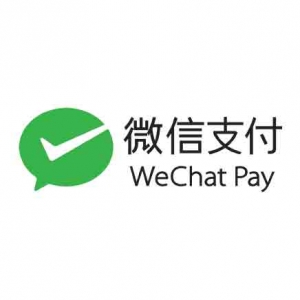China Payments Research
Is PayPal arriving too late to the China payments market?
How late is too late? That's the key question as PayPal prepares to enter China's digital payments market with the acquisition of the Chinese state-owned online payments provider GoPay. PayPal took the 70% stake in GoPay through one of its local subsidiaries, Yinbaobao. When the deal closes - expected in the fourth quarter - PayPal will become the first foreign online payments provider in China.
Tencent reportedly set to launch virtual credit payment product
If Chinese media reports are correct, Tencent's digital wallet will soon have a virtual credit card. The Chinese internet giant is reportedly developing a payment product called Fenfu for WeChat Pay, with an expected fourth quarter launch. Fenfu would allow WeChat Pay to compete directly in the virtual credit segment with its rivals' products.
UnionPay steps up global expansion along Belt and Road
Chinese payments giant UnionPay is on the road again - the Belt and Road, that is. Constrained by slowing economic growth at home, UnionPay is aligning itself with some of the key emerging markets involved in China's high-profile global infrastructure initiative. In recent months, UnionPay has boosted its presence in the United Arab Emirates, Kenya and Nepal with a focus on mobile banking, pre-paid payments and cross-border payments.
Alipay inks deal with fintech startup focused on Africa
Chinese fintech giant Alipay has been on a torrid expansion streak, entering global markets from the U.S. and Europe to Bangladesh and Pakistan. Now Alipay is pushing even further into emerging markets as it establishes a partnership with fintech startup Flutterwave to provide digital payments services between the Middle Kingdom and Africa.
China's UnionPay can't beat them, so it might as well join them: The payments giant is entering a partnership with UK-based fintech Tribe Payments that will allow banks and fintechs to issue its credit cards in Europe from July. Facing intense competition from internet finance titans Alipay and WeChat Pay at home, UnionPay is keen to drum up new business abroad. What better way than to cooperate with a rising British fintech?
One of the great ironies about China for multinational firms is that they feel they have to be there, but the gatekeeper doesn't always let them in. This paradigm is especially evident in the financial services sector, where foreign firms control less than 2% of the market 18 years after China entered the World Trade Organization and promised to dismantle trade and investment barriers.
Mastercard still thinks it pays to be in China
If your competitors are there, do you need to be there? Mastercard thinks so. Along with Visa and American Express (AmEx), it is trying to gain a foothold in China following Beijing's announcement in 2017 that U.S. credit-card companies could apply for licenses. In late 2018, Beijing approved the first such bank card transaction clearing license when it signed off on a joint venture between AmEx and Chinese fintech firm Lianlian.
Years ago, traditional POS machines only provided basic processing that were more convenient than cash transactions, but provided little help when it came to sales analysis. Smart POS started gaining traction in 2014 and grew rapidly as merchants juggled many different payment channels. A smart POS can process QR code, bank card, Quick Pass, as well as analyze business data, maintain membership details and combine online–offline sales. In December, UnionPay and Alipay both launched new acquiring products.
Wanglian passes its Double 11 test
Double 11, the biggest e-commerce shopping festival, had another amazing result in 2018. On November 11th 2018, total online sales in China reached RMB314.2 billion (USD45.2 billion) in one single day.
China's bank card market is large. Over 9 billion domestic payment cards will be in use by the end of 2018, a nearly 35% increase from the 6.7 billion in 2016. Even though the market is replete with card providers, the clearing business has been always dominated by the only one licensed clearing institution, China UnionPay (CUP), for both domestic and cross-border RMB transactions. That is, until now.
More...
Alipay ups its security to prevent scams
During the Internet Security Summit in Beijing on August 21st, Ant Financial announced the official upgrade for the security control of its digital payment platform – Alipay. The more secured process is achieved through what is called a 'Delayed Payment' (DP) function.
June 25th 2018, Ant Financial launched its E-wallet cross-border remittance service based on blockchain technology. Customers using Alipay HK can transfer money in real time to another E-wallet Gcash based in the Philippines.
Technology brings more imagination to financial service – from China Fintech to Techfin
China's tech giants are increasingly focused on positioning themselves as technology providers rather than financial services providers. A recent 3-second blockchain remittance from Hong Kong to the Philippines, was supported by Alipay HK and Philippine's GCash, cleared by Standard Chartered. Caifu Hao, a wealth management platform launched by Ant Financial, opened their AI-functioned investment tools to fund companies. Tencent recently signed contracts with a few banks to provide a financial cloud structure for acquiring and managing growing clients.
Faith can move mountains, Ant too.
Ant Financial was valued at $150 billion recently, making it the biggest unicorn globally. As it completed its most recent $10 billion financing, the company has made it clear that Ant’s future is being a tech provider to the financial industry.








